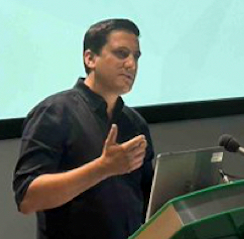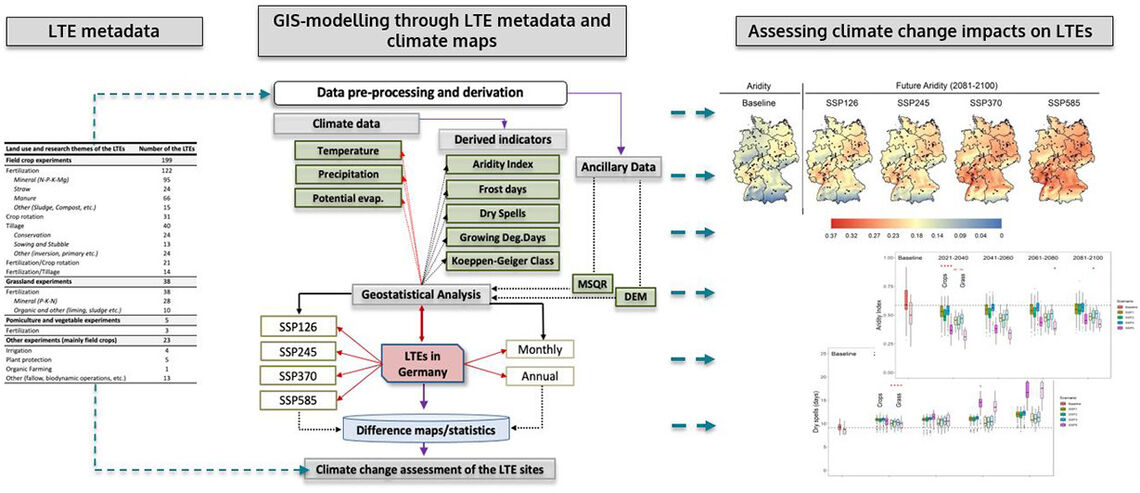Success Stories
Data reused in GIS-based modelling to assess future climate change impacts on LTEs in Germany
Success Story Highlights
-
Long Term Experiment (LTE=>20a) metadata set, downloaded through the BonaRes Repository with DOI
-
Quantifying anticipated spatially differentiated changes in agroclimatic conditions
-
Comparing a baseline period (1971–2000) with future timeframes (2021–2100) in line with the IPCC's Shared Socio-economic Pathways (SSP)
-
Facilitating future soil and crop modeling studies using LTE data and providing essential data for planning new LTE sites.
Detailed Story Description
The LTE metadata set, which can be accessed through the BonaRes Repository with the DOI: https://doi.org/10.20387/bonares-40kc-2661, was discovered using keywords "agriculture," "LTE," and "metadata" during a search of the repository. This dataset was readily downloadable in CSV format, providing valuable meta-information about Long-Term Experiments (LTEs) across Europe. These LTEs typically span a minimum duration of 20 years and encompass various categories such as management operations, land use, duration, and status. These LTEs were categorized based on information obtained from the repository, with distinctions made for factors like fertilization, tillage practices, crop rotation, and the type of land use (field crops or grassland), including whether they followed conventional or organic methods in the dataset.
Subsequently, this dataset played a pivotal role in a comprehensive methodology aimed at quantifying anticipated spatially differentiated changes in agroclimatic conditions for LTE sites in Germany. This served as a crucial prerequisite for modeling and interpreting LTE data. The study established a framework that integrated spatially distributed climate data with LTE metadata sourced from the BonaRes Repository. This framework was employed to identify potential climatic alterations at 247 LTE sites utilizing climate variables (such as temperature and precipitation) and agroclimatic indicators (including aridity and growing degree days) to compare a baseline period (1971–2000) with future timeframes (2021–2100) in line with the IPCC's Shared Socio-economic Pathways (SSP). Through this analysis, a comprehensive risk assessment for LTEs was carried out, focusing on changes in climate variables and agroclimatic indicators between the baseline and future scenarios.
The outcomes of this research offer valuable insights for interpreting LTE data in the context of climate change effects. This information not only facilitates future soil and crop modeling studies using LTE data but also provides essential data for planning new LTE sites. This, in turn, supports ongoing agricultural research efforts and the adaptation of management practices at existing LTE sites. Importantly, the framework developed in this study can be readily applied to LTE sites in agricultural regions worldwide, thereby contributing to LTE research focused on climate change impacts and adaptation.
cenk talk

Expertise:
Modeller, GIS-Expert, Data user, Climate Change, ecosystem services and agriculture
Success Story references
- Donmez C., Schmidt M., Cilek A., Grosse M., Paul C., Hierold W., Helming K. (2023). Climate change impacts on long-term field experiments in Germany. Agricultural Systems, 205(103578), DOI.

